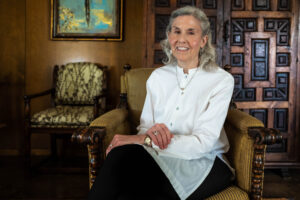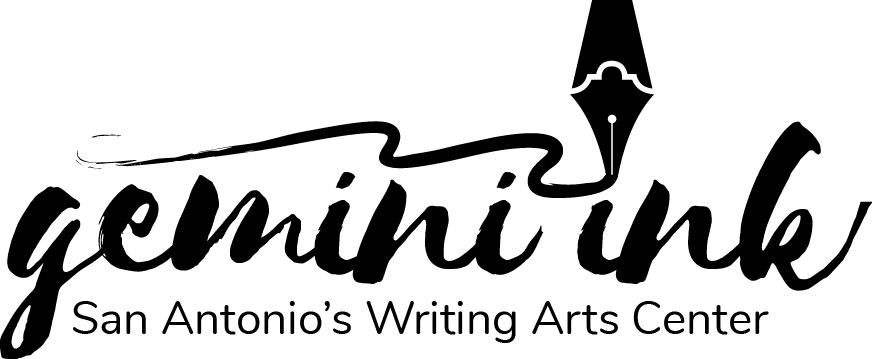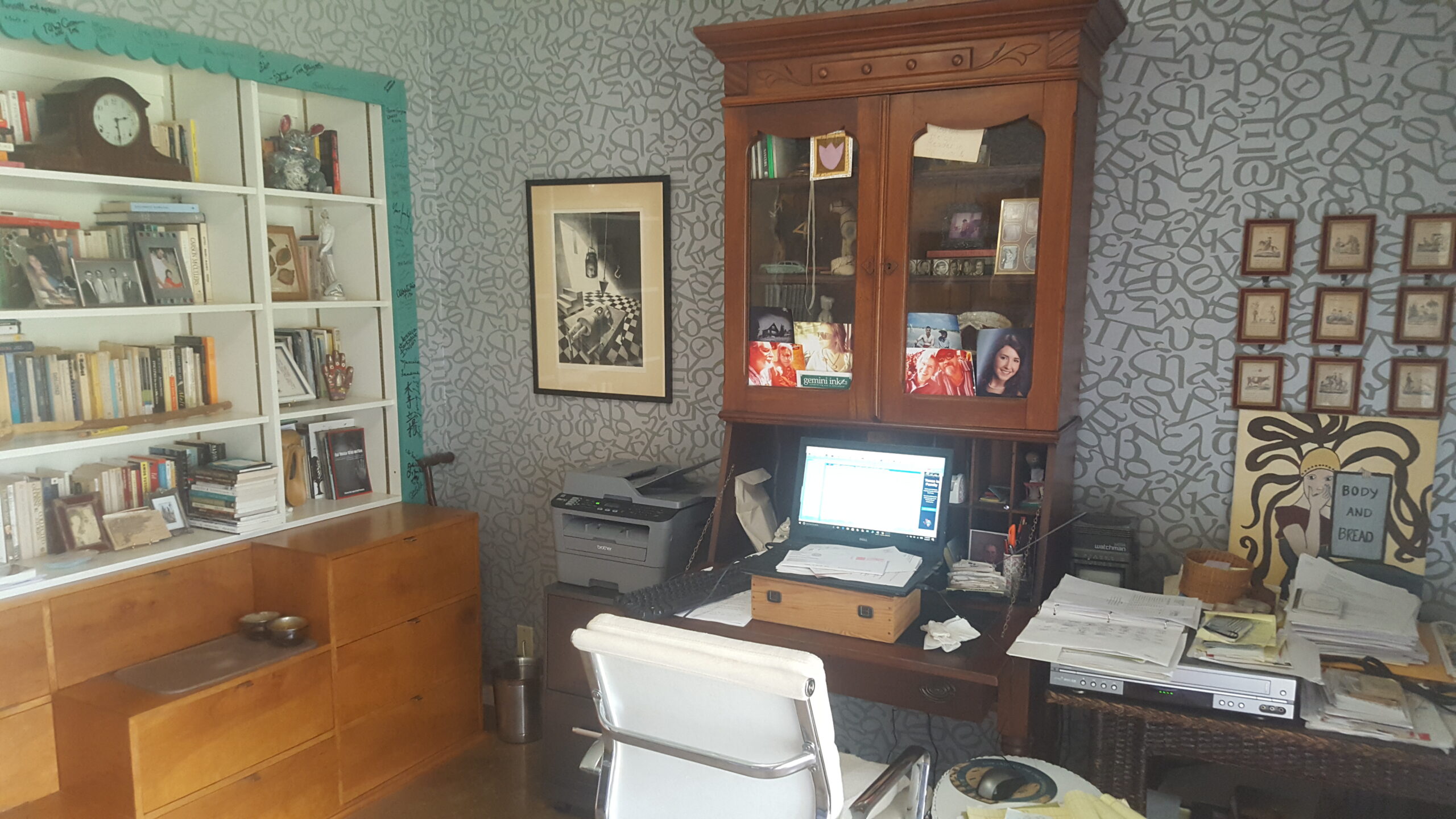The Writer’s Desk features the desks and writing practices of Gemini Ink faculty, visiting authors, teaching artists, volunteers, students, interns, staff, partners and more. Receive new posts in your inbox by subscribing to our newsletter at bit.ly/geminiinknewsletter.
Join Nan Cuba on Mondays, March 18, 25 & April 1, 8, 15, 22, 2024, 6:30-8:30pm CST, for her workshop: Fiction Never Lies: Turning Personal Experience into Emotional Truth. This six-week class will introduce techniques for identifying real events, people, or places that can be adapted into fiction.
Thank you for taking the time to answer these questions, Nan! We are excited to hear all about your inspirations as well as learning more about you as an author!
Describe your first writing desk. How is it different (or not) from your current writing desk?
My first writing desk belonged to my maternal grandmother, a cottage oak pedestal with many drawers. I put a piece of glass on top that covered my favorite photographs I looked at while typing. The desk I use now belonged to my paternal grandmother, an antique secretary with cubbyholes and a glass-fronted bookshelf filled with mementos. I moved from one grandmother to the other.
What is the one piece of writing advice that you value most?
My teacher Robert Boswell said I should use my most sensitive memories and feelings as material for my fiction. That’s what readers are most interested in reading about. Be honest; don’t sensationalize, sentimentalize, or cover over. Dig deeply and convey what you find with objectivity. Be Chekhov, who said his only job was to know what questions to ask.
What theme or symbol often emerges in your work? Why are you drawn to this theme/symbol?
A theme that keeps emerging in my fiction is a character unknowingly doing harm to someone else. I don’t know where the idea came from, but it’s the source of my discomfort with violence and my need to understand its causes.
Who are your heroes in real life? What do you admire most about them?
My current heroes are professionally ethical journalists who report factual news. I subscribe to and read three newspapers every morning. Journalists sometimes risk their lives to make sure we are informed, which is especially important as our democracy and freedoms are being threatened, and newspapers have fewer resources.
Do you like things to be carefully planned out or do you prefer to just go with the flow? Does this also apply to how you lay out a story?
My days are carefully planned, but not my fiction. Writing is a process of discovery. That’s the only way to tap into your subconscious where literary gems are waiting.
Who are your favorite writers? And who is your favorite hero/heroine in fiction?
Marilynne Robinson, Alice Munroe, Joan Silber, Elizabeth Strout, Jorge Louis Borges, Chekhov, Virginia Woolf, Katherine Anne Porter, Ian McEwan, Carol Shields, W.B. Sebald, Chang-Rae Lee, Toni Morrison, J.M. Coetzee, Carson McCullers, Yuri Herrera, Peter Taylor, Colm Tóibín, Jenny Erpenbeck, Kazuo Ishiguro, Elena Ferrante, Paul Auster, Charles Baxter. Favorite heroine: Ruth, the narrator in Marilynne Robinson’s Housekeeping.
What’s the most interesting thing you’ve heard or read recently?
I’ve read that people from both political parties are overwhelmed with despair, and for extremists on the right, that hopelessness causes them to want to return to an idealized, unrealistic past. Instead, we should all be more optimistic about a future we can create together. I’m working on this.
Does good writing result from best practices, magic, or a bit of both?
Think of the process as a Ouija board. You move the hand plate, tending to craft issues—language, dialogue, pacing, etc.—then magically see the message your story has revealed.
What is your next project?
I’m revising a novel that is loosely based on my journalistic experience interviewing the serial killer, Henry Lee Lucas. He confessed to hundreds of murders then recanted them, throwing the criminal justice system into chaos. My novel is about the lives of four people involved in the nationwide investigation while the killer is confessing. I’m showing why they got involved, how they influenced the investigation, and how their experiences affected them. The novel’s core idea is the subjectivity of truth.
If people want to learn more about your work, where should they go?
https://www.texasmonthly.com/list/the-10-writers-to-watch-and-read/mary-helen-specht-and-nan-cuba/

Nan Cuba is the author of Body and Bread, winner of the PEN Southwest Award in Fiction and the Texas Institute of Letters Steven Turner Award; it was listed as one of “Ten Titles to Pick Up Now” in O, Oprah’s Magazine and was a “Summer Books” choice from Huffington Post. Other work has appeared in Antioch Review, Harvard Review, Columbia, Quarterly West, and Chicago Tribune’s Printer’s Row. As an investigator of the causes of extraordinary violence, she is a featured journalist in the Netflix documentary, The Confession Killer, and another by Hulu, Wild Crimes: Murder in Yosemite. Cuba is included in Texas Monthly’s “Ten to Watch (and Read)” and has received a Dobie Paisano Fellowship and an artist residency at Fundación Valparaiso in Spain. She is co-founder and executive director emeritus of Gemini Ink, a nonprofit writing arts center, and was Writer in Residence at Our Lady of the Lake University.



